Living in an apartment building can be a great way to meet new people and build community, but it can also come with its fair share of challenges, particularly when dealing with difficult neighbors. Whether you’re facing noisy parties, inconsiderate parking, or other frustrating situations, it’s essential to find constructive ways to address these issues. This article will provide you with practical tips and strategies on how to deal with difficult neighbors in an apartment, fostering a peaceful and harmonious living environment for everyone.
Identifying the Source of the Problem with Your Neighbor
Before you can effectively deal with a difficult neighbor, it’s essential to understand the root of the issue. Identifying the source of the problem can help you determine the best course of action. Here are some common scenarios to consider:
Lack of Communication: Sometimes, misunderstandings arise simply due to a lack of communication. Perhaps your neighbor is unaware of the noise level they’re generating or the impact their actions have on you.
Different Lifestyle Habits: Everyone has their own rhythm and preferences. A night owl and an early bird living in the same apartment building may clash due to their differing lifestyle habits.
Personal Issues: It’s possible your neighbor is facing personal challenges that manifest in their behavior. They might be experiencing stress, anxiety, or other issues affecting their interactions with others.
Intentional Disregard: Unfortunately, some neighbors may intentionally disregard your boundaries and create conflict. This can be fueled by a sense of entitlement, disrespect, or even malice.
Unresolved Conflicts: Existing issues between you and your neighbor, whether small or significant, can fester and lead to escalated tensions.
Communicating Directly with Your Neighbor to Address Concerns
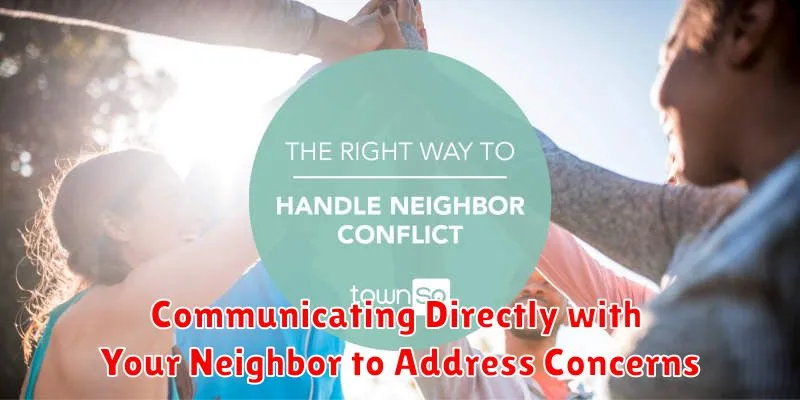
Direct communication is often the most effective way to resolve issues with your neighbors. It allows you to voice your concerns and understand their perspective. When approaching your neighbor, it’s crucial to do so calmly and respectfully. Avoid accusatory language and instead focus on the specific problem and its impact on you. For example, instead of saying “You’re always making noise,” try “I’ve noticed a lot of noise coming from your apartment lately, especially around [specific time]. It’s been a little disruptive to my [routine/sleep/etc.].”
Be prepared to listen to your neighbor’s side of the story and try to find a mutually acceptable solution. Perhaps there are things you can do to minimize the impact of the noise, such as wearing noise-canceling headphones or adjusting your own schedule. It’s also important to remember that neighbors are often unaware of the impact their actions may have on others. Open and honest communication can help bridge the gap and build a more harmonious living environment.
Documenting Instances of Disruptive Behavior
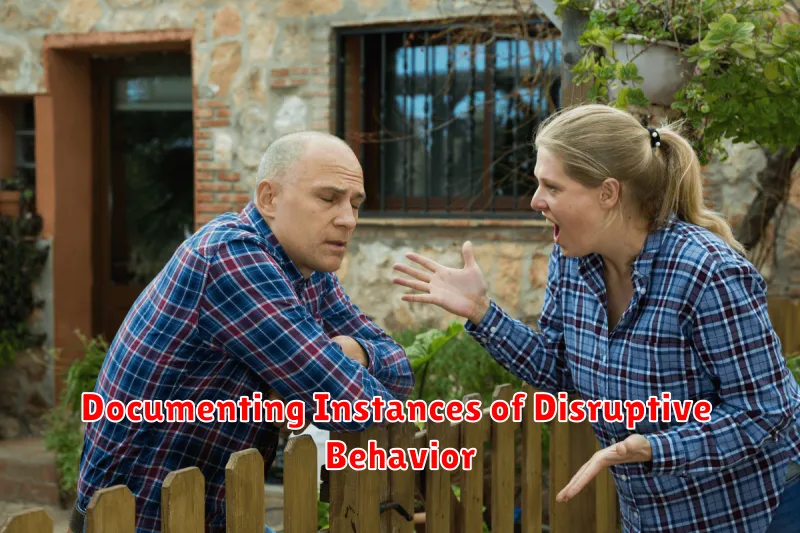
If your attempts to resolve the issue directly with your neighbor haven’t worked, documenting instances of disruptive behavior is the next step. This creates a record that you can use when you speak with your landlord or building management.
When documenting, keep these tips in mind:
- Date and time: Record the exact date and time of each incident.
- Specific details: Describe the disruptive behavior in detail, including what happened, how long it lasted, and any specific sounds or actions. Avoid using subjective terms like “loud” or “annoying.” Instead, use specific descriptors like “banging music” or “yelling.”
- Witnesses: If anyone else witnessed the disruptive behavior, note their names and contact information.
- Evidence: If possible, gather evidence like photos, videos, or audio recordings of the disruptive behavior. However, make sure to respect your neighbors’ privacy and only record what’s happening in your own space.
- Keep it factual: Focus on objective observations and avoid making accusations or interpretations.
- Stay organized: Keep your documentation in a safe and organized location, such as a notebook, spreadsheet, or digital document.
By documenting the instances of disruptive behavior, you’ll have a strong foundation for addressing the issue with your landlord or building management. This will help them take appropriate action to address the problem and create a more peaceful living environment for you.
Contacting Your Landlord or Property Management
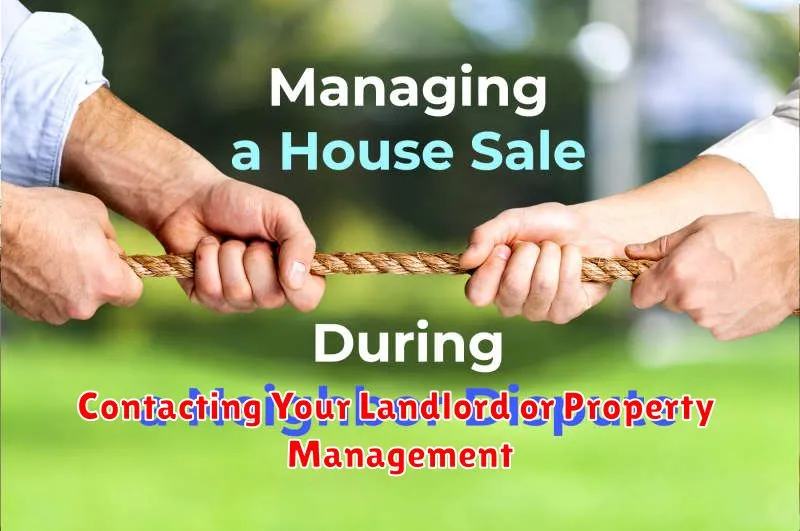
Sometimes, despite your best efforts, you may need to involve your landlord or property management company to address the situation with your neighbor. Before contacting them, it’s crucial to document all the issues you’ve experienced, including dates, times, and specific details. This documentation will be vital if you need to file a formal complaint.
When contacting your landlord or property management, be clear and concise about the issues you’re facing. Explain the situation calmly and objectively, providing evidence of your attempts to resolve the problem directly with your neighbor. You should also state the impact the behavior is having on your life and request their intervention to resolve the situation.
Be prepared to answer their questions and provide any additional information they may need to investigate the situation further. Remember to be respectful and professional in your communication, even if you’re frustrated with the situation. Maintaining a positive and cooperative tone will make it more likely that they’ll take your concerns seriously and be willing to help find a solution.
Seeking Mediation or Dispute Resolution Services

If you’ve exhausted all other options and communication has broken down, you may want to consider seeking mediation or dispute resolution services. Many apartment complexes offer these services or can refer you to an external organization. Mediation involves a neutral third party who helps both parties communicate and reach a mutually agreeable solution. Dispute resolution might involve a more formal process, such as arbitration, where a third party will hear evidence and make a binding decision.
These services can be particularly helpful when dealing with complex issues or when emotions are running high. They provide a structured and neutral setting for resolving conflicts, which can be more productive than trying to negotiate directly with your neighbor.
Before contacting mediation or dispute resolution services, it’s helpful to gather documentation of the issues, such as emails, texts, or witness statements. Be prepared to discuss your concerns clearly and calmly, and be open to compromise. It’s important to note that these services may not be free, and you should check with your apartment complex or the service provider for their fees.
Understanding Your Rights as a Tenant
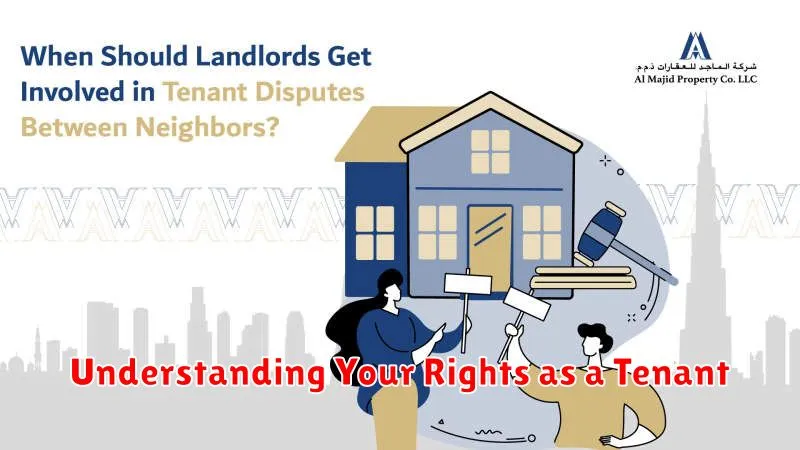
Dealing with difficult neighbors can be a stressful experience, but it’s important to remember that you have rights as a tenant. Familiarizing yourself with your rights will empower you to address any issues effectively and protect your well-being within your living space.
Firstly, understand that you have the right to a peaceful and quiet enjoyment of your apartment. This means that your neighbors cannot excessively disrupt your life with noise, odors, or other disturbances. If you feel your rights are being violated, you can document the issues and approach your landlord or property management with a formal complaint.
Secondly, you have the right to privacy within your apartment. Your landlord generally cannot enter your unit without proper notice and a valid reason, such as an emergency or routine maintenance. Be sure to check your lease agreement for specific details regarding entry regulations. If you believe your privacy is being breached, consult your lease and consider contacting legal counsel.
Finally, it’s important to remember that your landlord has a responsibility to maintain a safe and habitable living environment. This includes addressing issues like pest infestations, faulty appliances, or broken utilities. If you encounter such problems, you have the right to request repairs and, if necessary, escalate the issue to local authorities.
By understanding your rights as a tenant, you can feel more confident in addressing any issues with your neighbors and ensure your living environment remains peaceful and comfortable. Always consult your lease agreement and local laws for a complete understanding of your rights and responsibilities.
Taking Legal Action as a Last Resort
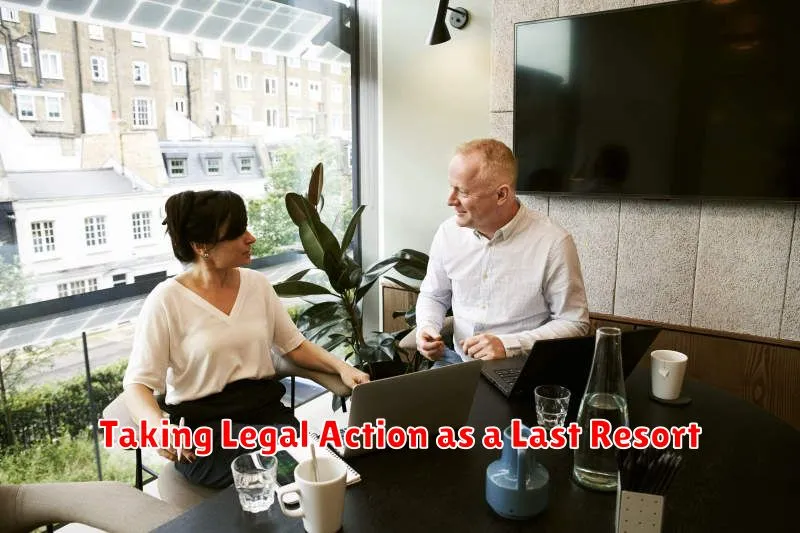
While it’s always ideal to resolve issues with your neighbors amicably, sometimes their behavior can be so disruptive or harmful that legal action becomes the only option. This is a last resort, as it can be costly and time-consuming, but it’s necessary in extreme cases.
Before taking legal action, it’s important to document everything. Keep a detailed log of all instances of the neighbor’s disruptive behavior, including dates, times, specific actions, and any witnesses. This documentation will be crucial if you decide to pursue legal action. You should also inform your landlord or property manager in writing of the situation and the steps you’ve taken to resolve it.
Legal options vary depending on the nature of the problem and your local laws. Some common issues that may warrant legal action include noise violations, property damage, harassment, and threats of violence. You may be able to file a small claims lawsuit to seek compensation for damages or to enforce a cease and desist order.
It’s always best to consult with an attorney before taking any legal action. They can advise you on your options and help you navigate the legal process. Taking legal action against a neighbor can be stressful, but it’s sometimes necessary to protect your peace and well-being.
Maintaining a Respectful Distance While Addressing the Issue
When dealing with difficult neighbors, it’s crucial to maintain a respectful distance. Avoid engaging in heated confrontations, as this can escalate the situation. Instead, focus on communicating your concerns clearly and calmly, emphasizing your desire for a peaceful resolution. Avoid personal attacks or blame, focusing on the specific issue at hand. For example, instead of accusing your neighbor of being loud, try explaining how the noise impacts you and requesting a compromise.
Remember, the goal is to reach a resolution that respects both your needs and those of your neighbor. If direct communication proves ineffective, consider seeking mediation or involving the building management.

